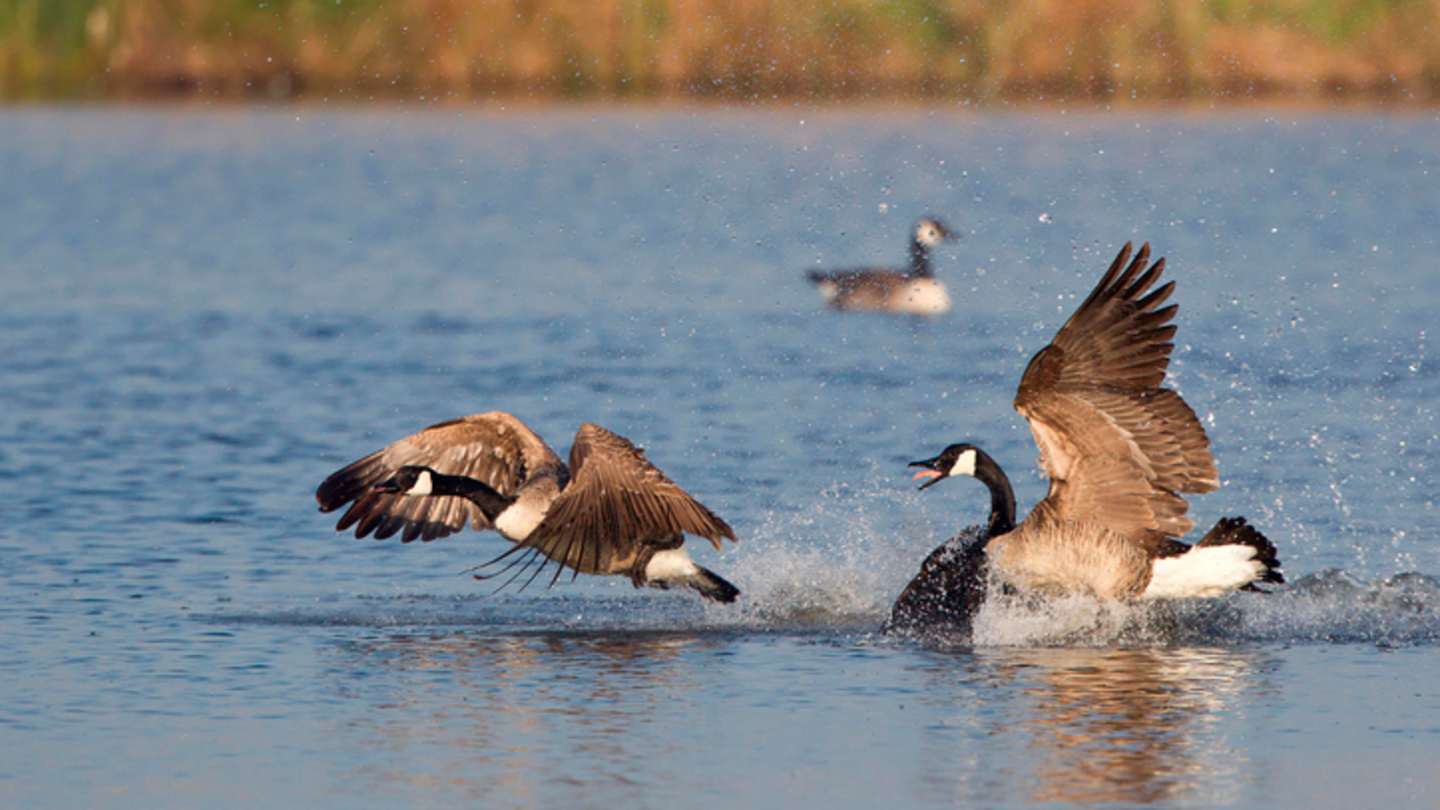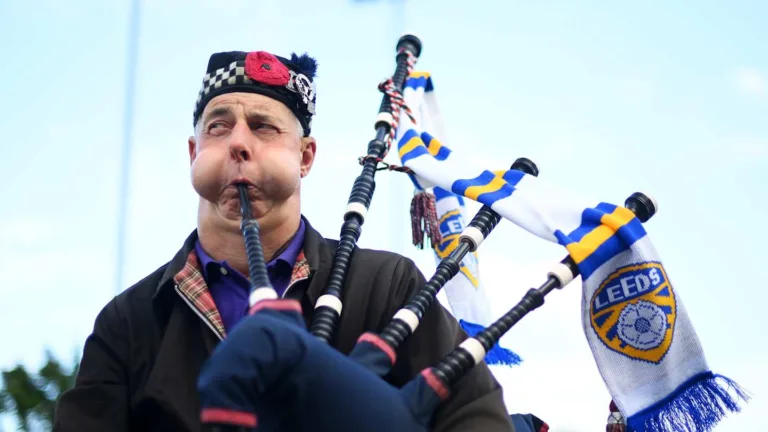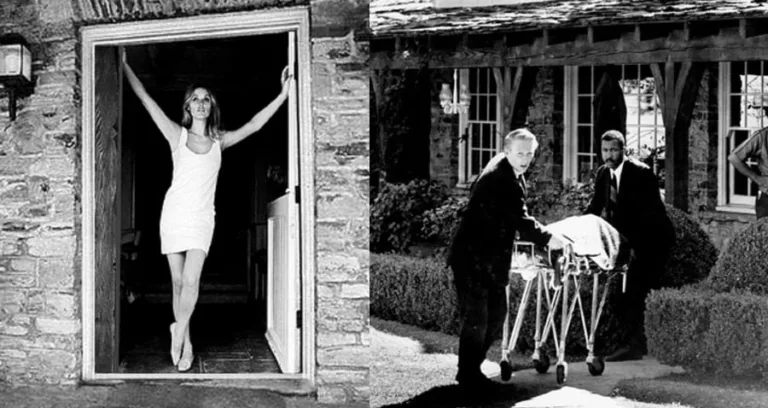Have you ever found yourself on a quest that seemed to lead nowhere? Perhaps you were searching for something elusive, or maybe you were simply chasing after an impossible dream. This kind of frustrating pursuit is often described as a “Wild Goose Chase,” a phrase we use to denote a futile or difficult endeavor.
But did you know that the origin of wild goose chase doesn’t involve birds at all? It actually has its roots in a rather peculiar type of horse race! Picture this: riders, determined and skilled, would follow a winding course set by a leader who meticulously retraced Every Move, much like geese flying in formation. This challenging race, with its resemblance to the synchronized flight of birds, earned the name “Wild Goose chase” Over Time.
The origins of the phrase take us on a journey through history, from a literal horse race to Shakespeare’s plays and finally to our modern understanding of a pointless or Unsuccessful Venture. As we delve deeper, you’ll discover how this fascinating term evolved, reflecting our collective understanding of perseverance, frustration, and the ever-present pursuit of elusive goals.
The Wild Goose Chase as a Horse Race
Now, let’s travel back in time to the world of 16th and 17th century England, where horse racing was a popular spectacle. This wasn’t your typical race with a clear starting line and finish; it was more like a test of skill, strategy, and endurance. Imagine a course laid out with twists, turns, and unexpected detours – the very picture of a chaotic chase!
The “Wild Goose Chase” as a horse race involved riders following a leader who set a Winding Path, often retracing their steps in a Confusing Labyrinthine Pattern. Picture them weaving through crowds, Galloping Over Uneven Terrain, and constantly adjusting course to keep up with their unpredictable guide. It was a true test of a rider’s focus and agility! This type of race, with its resemblance to the synchronized flight of geese, gave birth to the term “Wild Goose Chase.”
This horse racing version of the phrase existed for centuries, serving as a perfect metaphor for any pursuit that involved confusing twists and turns. While it eventually faded from common usage, its legacy lives on in our modern understanding of the term – a reminder that sometimes, the path we choose can lead Us Far Astray.
Shakespeare’s Influence on Modern Usage
Fast forward a few centuries, and we find ourselves in the world of William Shakespeare, the Bard himself. Shakespeare, a master of language and storytelling, was deeply familiar with the term “Wild Goose chase” as it existed within horse racing circles. Interestingly, he chose to adopt the phrase and weave it into one of His Most Famous Plays, Romeo and Juliet.
In this play, Shakespeare uses the term “Wild Goose chase” not in reference to a literal race but rather as a metaphor for a pointless or frustrating pursuit – a battle of wits with no Clear Winner. This reinterpretation, skillfully crafted by Shakespeare’s pen, resonated with audiences and began to shift the understanding of the phrase from its physical origins to a More Metaphorical Realm.
This Shakespearean touch proved incredibly influential. Over time, his use of “Wild Goose chase” as a metaphor for an ultimately Fruitless Endeavor Gained Widespread Traction. While the original horse-racing meaning gradually faded into obscurity, Shakespeare’s reinterpretation became the dominant understanding of the term – a legacy that continues to shape Our Language Today.
 Oreo Design History: Unraveling the Mystery Behind the Iconic Pattern
Oreo Design History: Unraveling the Mystery Behind the Iconic PatternFrom Physical to Metaphorical Pursuit
The journey of “Wild Goose chase” from its humble beginnings as a literal horse race to its current status as a universally understood metaphor is a fascinating reflection of how Language Evolves. While the original physical meaning persisted for centuries, it eventually gave way to the more abstract interpretation popularized by Shakespeare.
This shift in meaning highlights the remarkable adaptability of language. Words can begin with concrete origins but gradually develop new layers of Significance Over Time, reflecting changing cultural contexts and evolving ways of thinking. This transformation from a literal pursuit to a metaphorical one demonstrates how language allows us to express complex ideas and experiences with greater depth and nuance.
Today, “Wild Goose chase” has become synonymous with any endeavor that proves pointless or frustrating, regardless of its physical nature. It captures the essence of chasing after something unattainable or pursuing a goal that leads only to disappointment.
Chasing the Meaning Behind the Phrase
The story of “Wild Goose chase” is a reminder that even seemingly simple phrases can have rich and Complex Histories. Behind every word lies a web of cultural influences, Historical Events, and evolving interpretations that shape its Meaning Over Time.
By tracing the journey of this phrase from its origins in horse racing to its modern metaphorical usage, we gain a deeper understanding not only of language itself but also of how societies evolve and how our collective experiences influence the way We Communicate. It’s a testament to the power of words to transcend their literal meanings and become potent symbols that Encapsulate Universal Human Experiences – Such As Frustration, perseverance, and the ever-present pursuit of elusive goals.
Perhaps the next time you find yourself on a “Wild Goose Chase,” take a moment to appreciate the journey this phrase has taken, from the racetrack to the stage and finally into our everyday conversations. It’s a reminder that even in moments of frustration, there’s always a story waiting to be uncovered.
Beyond the Bird: Modern Interpretations
While the image of a flock of geese flying erratically might still be conjured when we hear “Wild Goose Chase,” the phrase has transcended its literal origins to encompass a much broader spectrum of experiences. Today, it’s widely used to describe any endeavor that proves futile, pointless, or simply a waste of time and effort.
Think about searching endlessly for lost keys, Trying To Decipher Cryptic Instructions, or pursuing a romantic interest who is clearly uninterested – all these scenarios can be described as “Wild Goose Chases.” The beauty of this metaphorical interpretation lies in its versatility. It captures the universal feeling of frustration that comes with chasing after something that ultimately proves unattainable.
Whether it’s a literal quest or a figurative one, “Wild Goose chase” reminds us that sometimes, Despite Our Best Efforts, we might find ourselves going in circles, wasting valuable time and energy on pursuits that lead nowhere.










